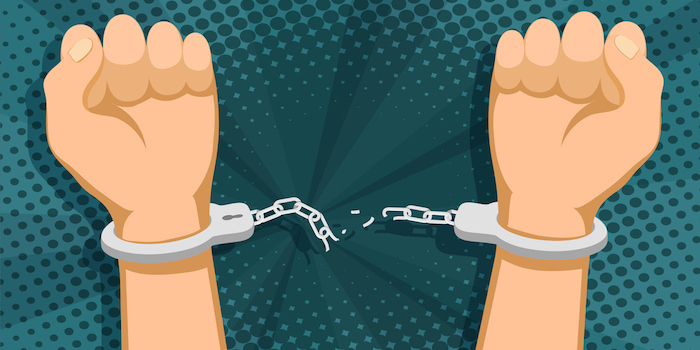Enhancing Shared Decision Making & Avoiding “Hostage Bargaining Syndrome”

Today, people in healthcare speak of “patient engagement,” “partnership in care,” and “shared decision-making.” A new study1 has identified a barrier to all of these efforts: “hostage bargaining syndrome.” The study outlines ways to identify if your patients have this syndrome, and suggests things you can do to try to overcome it.
Have you have ever worked with a patient who didn’t ask questions or express an opinion or concern—even when it was important for to speak up when a change in the treatment plan won’t work for his or her life, or after a medical error or an adverse event? If so, the patient might have been afraid that a healthcare team member would perceive his/her speaking up and self-advocating as challenging their “authority.” Individuals might clam up out of fear of retribution and to avoid being labeled as a “bad patient.”
When patients lack the confidence to speak up, and they feel out-of-control and overwhelmed by their health challenges, there is a risk that they will develop “learned helplessness” and become dependent, passive recipients of care. You might notice this in a patient and mistake it for being unmotivated or disinterested. Although some patients may actually be unmotivated or disinterested, some, especially older and some minority patients may need to be taught how to assert themselves in healthcare settings. The Agency for Healthcare Research and Quality proposes teaching empowerment to staff and patients using statements that grow increasingly assertive:2 “I am Concerned,” “I am Uncomfortable,” “This is a safety issue.”
Do you have patients you suspect may feel like hostages? Look at the patient-staff interactions in your home dialysis clinic:
- Do doctors and other staff talk with patients while sitting eye-to-eye with them?
- Do they take the time to ask patients what they think about recommendations or proposed changes in the plan of care and how those will work for them?
- Do they ask open-ended questions?
- Do they encourage patients to speak up, including reporting concerns or complaints?
- Do staff act compassionately?
- Do they behave in ways that engender trust?
If so, a three-step model has been proposed to help to promote shared decision-making:
1. Let patients know that there is a choice of options
2. Describe the details of each option, including the risks and benefits, in terms the patient can understand
3. Help the patient make a decision with you by asking what matters most to him/her and how the options fit with that. (Note: If a decision is about a type of home dialysis, My Life, My Dialysis Choice can help you and your patients see which options may be the best fits.)
Patients on home dialysis take the initiative to be in as much control of their illness and treatment as possible. The interdisciplinary team needs to recognize which patients appear to have hostage bargaining syndrome and work alongside them to overcome this barrier to shared decision-making and optimal outcomes. We need to encourage each patient to have a voice and to recognize that our patients may not be clinical experts, but they are experts in what it feels like to live in their bodies and to experience their condition first-hand. We need to give them credit for that.
- Berry LL, Danaher TS, Beckham D, Awdish RLA, Mate KS. When Patients and Their Families Feel Like Hostages to Health Care. Mayo Clin Proc. 2017 Sep;92(9):1373-1381. ↩︎
- Agency for Healthcare Quality & Research. Pocket Guide TeamSTEPPS: Team Strategies & Tools to Enhance Performance and Patient Safety. https://www.ahrq.gov/teamstepps/instructor/essentials/pocketguide.html ↩︎


Comments